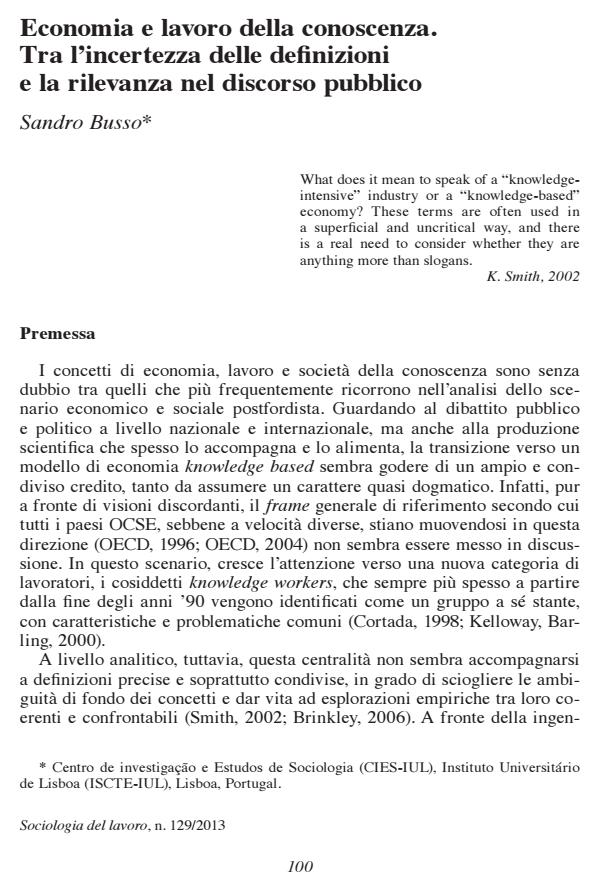Knowledge economy and knowledge work. Between the uncertainty of the definitions and the relevance in public discourse
Journal title SOCIOLOGIA DEL LAVORO
Author/s Sandro Busso
Publishing Year 2013 Issue 2013/129
Language Italian Pages 18 P. 100-117 File size 244 KB
DOI 10.3280/SL2013-129007
DOI is like a bar code for intellectual property: to have more infomation
click here
Below, you can see the article first page
If you want to buy this article in PDF format, you can do it, following the instructions to buy download credits

FrancoAngeli is member of Publishers International Linking Association, Inc (PILA), a not-for-profit association which run the CrossRef service enabling links to and from online scholarly content.
In the analysis of the post-fordist society, the knowledge economy and knowledge work have a central place and deserve therefore special attention. These concepts play a key role in the public and political discourse, although their growing success and popularity come along with a lack of precise and agreed definitions or measurements. Starting from this tension, this article analyses the complex process of classification and measurement creation for both knowledge economy and work, and focuses on the conceptual aspects of the definitions as well as on the empirically based models. Conclusive considerations will then return on the relation between analytical categories and public discourse, arguing that also the uncertainty of definitions may play a strategic role in legitimising political positions.
Keywords: Knowledge economy, Knowledge work, Post-Fordism, Definitions, Measurements, Public Discourse
- Il lavoro gratuito in rete: tra paradossi del dono e del riconoscimento Anna Cossetta, Sergio Labate, in SOCIOLOGIA DEL LAVORO 133/2014 pp.196
DOI: 10.3280/SL2014-133014
Sandro Busso, Economia e lavoro della conoscenza. Tra l’incertezza delle definizioni e la rilevanza nel discorso pubblico in "SOCIOLOGIA DEL LAVORO " 129/2013, pp 100-117, DOI: 10.3280/SL2013-129007